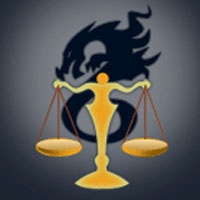Moorestown Divorce & Family Law Lawyer, New Jersey
Sponsored Law Firm
-
 x
x

Click For More Info:
-
Popescu Law Group
2501 Route 516 Suite 200 Old Bridge, NJ 08857» view mapDivorce & Family And Business Law Custom Tailored To Your Needs
Our mission is to provide creative, practical and sophisticated legal expertise at reasonable cost to clients, large and small alike.
800-803-3160
Cara McCafferty
✓ VERIFIEDI am an enthusiastic and very capable attorney that has own practice. With over 12 years of experience, I am confident that my abilities can meet your... (more)
James R. Fridie
✓ VERIFIEDI am the founder and owner of the Fridie Law Group LLC. We are a full-service litigation firm with a concentration in Family Law, Criminal Law, Elder ... (more)
Jeffrey F Dragon
✓ VERIFIEDJeffry Dragon is a practicing attorney in New Jersey. He attended Rutgers University School of Law where he received his J.D. He currently specializes... (more)
Michael Stein
✓ VERIFIEDThe law office of Michael J. Stein has been an integral part of the surrounding communities of Burlington County for more than a decade. We help fam... (more)
Michael D. Fioretti
✓ VERIFIEDThe Law Offices of Michael D. Fioretti has been in existence since 1981. Our firm’s practice extends to the following counties: Bucks, Chester, Dela... (more)
Daniel K. Snyder
Donald R Gosnay
FREE CONSULTATION
CONTACT Robert S. Popescu Old Bridge, NJ
Robert S. Popescu Old Bridge, NJ Practice AreasExpertise
Practice AreasExpertise





